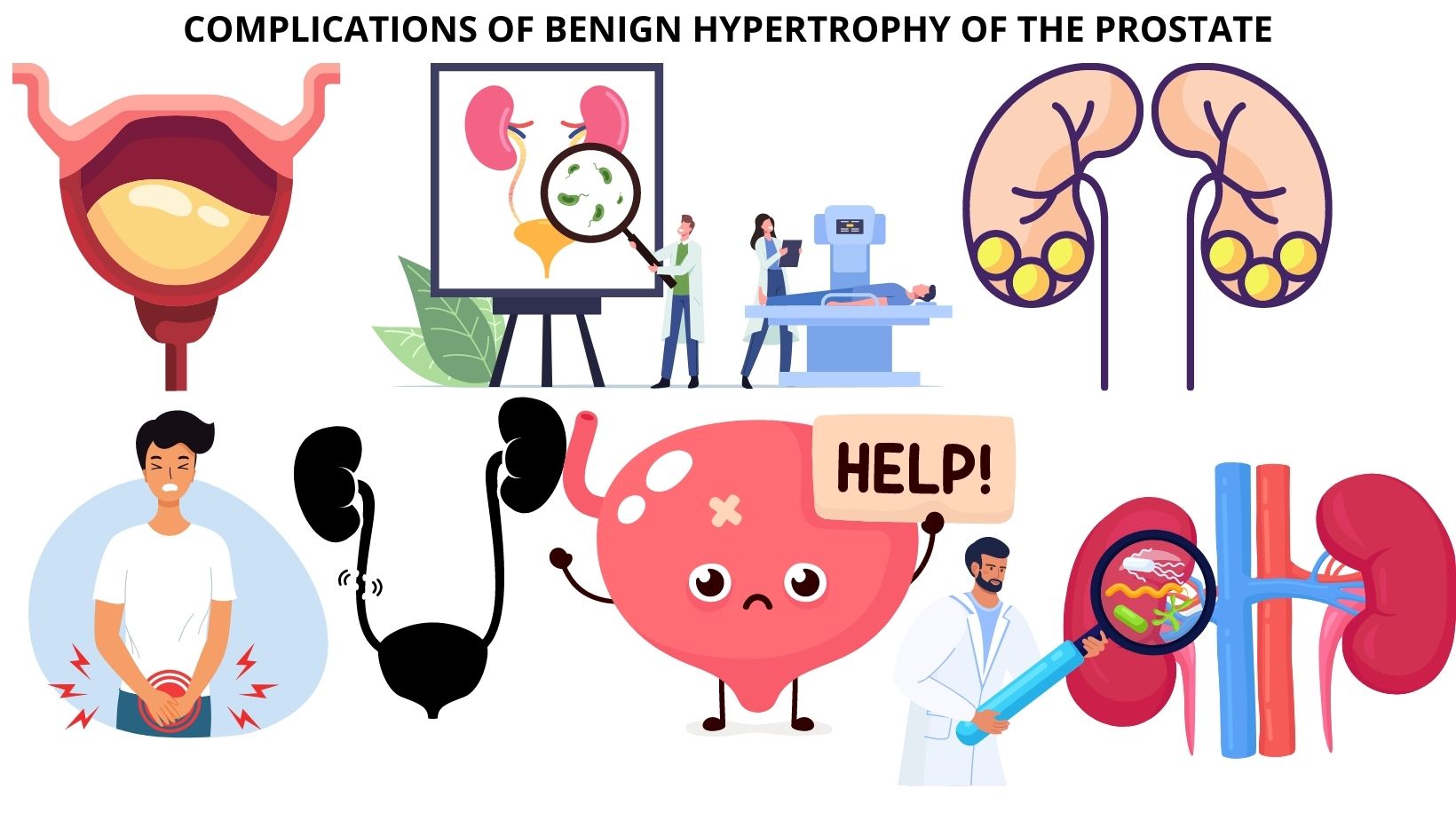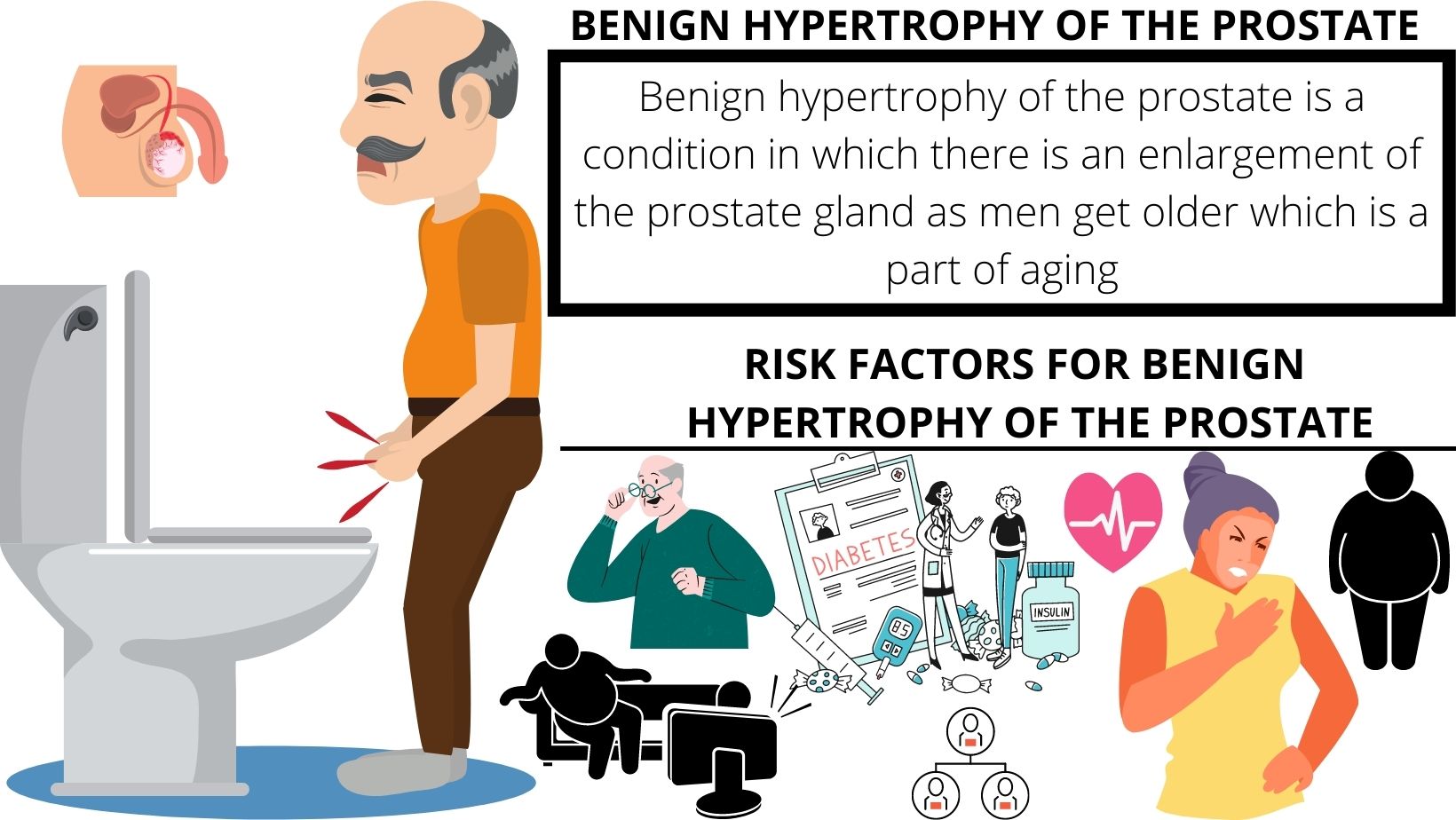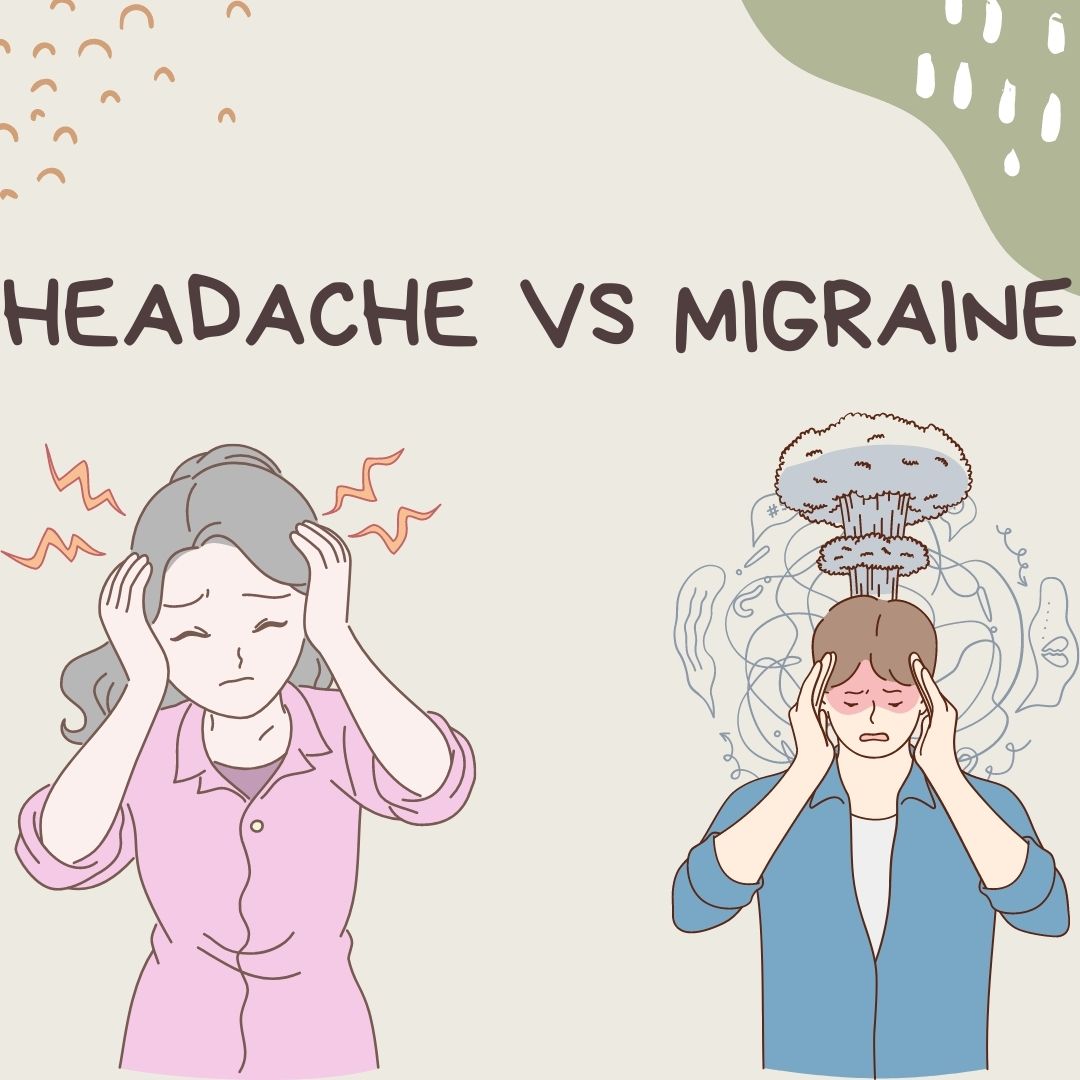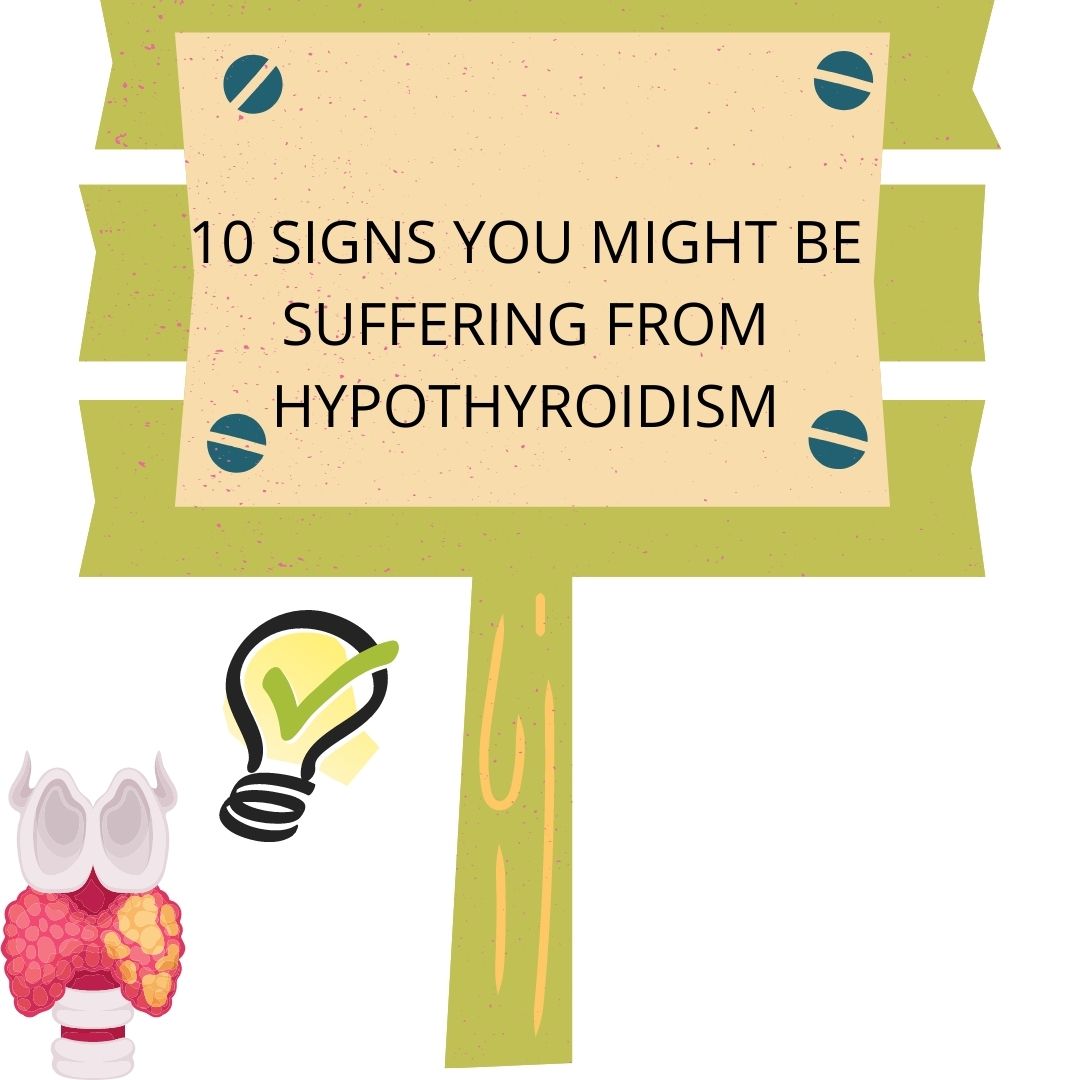THE DEFINITIVE GUIDE FOR THE TREATMENT OF BENIGN HYPERTROPHY OF PROSTATE (BHP)
WHAT IS BENIGN HYPERTROPHY OF THE PROSTATE?
Benign hypertrophy of the prostate is a condition in which there is an enlargement of the prostate gland as men get older which is a part of aging. But it becomes a problem when the enlarged prostate starts to show symptoms.
The prostate surrounds a part of the urethra in males which carries urine and semen to the penis. When the prostate is enlarged it compresses the urethra thus causing blockage to the flow of urine.
BHP is a benign condition thus it is not related to or causes cancer but both conditions can occur together as well.
WHAT ARE THE RISK FACTORS FOR BENIGN HYPERTROPHY OF THE PROSTATE?
- AGE: BHP is rarely seen in men before their 40s. Thus the enlarged prostate shows symptoms usually after 60 years of age.
- FAMILY HISTORY: Having a family history of BHP makes you more prone to have the condition.
- DIABETES: also increases the predisposition to enlargement of the prostate.
- HEART DISEASES: also increases the chances to have BHP.
- OBESITY: in obese there are chances that you might end up having the symptoms of BHP.
- LACK OF EXERCISE: if you would exercise regularly chances of having BHP is less.
WHAT ARE THE COMPLICATIONS OF BENIGN HYPERTROPHY OF THE PROSTATE?
- SUDDEN RETENTION OF URINE: in some cases, there is sudden retention of urine due to the inability to pass urine thus causing great discomfort. In such cases, there is a need to insert a catheter to empty the bladder. Sometimes even surgery is required to empty the bladder.
- URINARY TRACT INFECTION: due to retention of urine there are increased chances of developing a UTI.
- BLADDER STONES: due to the inability to empty the bladder there are chances of stones in the bladder due to the formation of concretions caused by the concentration of urine.
- BLADDER WEAKNESS: due to retention of urine frequently the bladder muscles become weak and thus lose the ability to contract over time.
- DAMAGE TO KIDNEYS: full bladder causes backflow of urine to the kidneys and can also lead to migration of infection to the kidneys which would cause damage to the kidneys.
 WHAT ARE THE SYMPTOMS OF BENIGN HYPERTROPHY OF THE PROSTATE?
WHAT ARE THE SYMPTOMS OF BENIGN HYPERTROPHY OF THE PROSTATE?
- Frequent urination
- Urgency to urinate
- Increased urge to urinate especially at night.
- Weak and feeble stream of urine.
- Inability to empty bladder thus causing an unsatisfactory feeling
- Dribbling of urine at the beginning and end of urination.
- Urinary tract infection causing burning micturition, pain in the lower abdomen, etc.
- Sometimes the patient is not able to pass urine at all thus causing retention of urine.
- Occasionally blood is also seen in the urine.
WHAT ARE THE CAUSES OF BENIGN HYPERTROPHY OF THE PROSTATE?
The exact cause of enlargement of the prostate is not known but it is seen that it is an age-related process so hormones are thought to play role in BHP.
DIAGNOSIS OF BENIGN HYPERTROPHY OF THE PROSTATE?
- RECTAL EXAMINATION: An enlarged prostate can be felt during a rectal examination.
- BLOOD TEST FOR PSA ( Prostate-specific antigen): The prostate produces PSA thus enlarged prostate would cause an increase in levels of PSA but surgical procedures, infection and prostate cancer may also increase PSA levels.
- URINE FLOW TEST: the measurement of the amount and stream of urine also helps in the diagnosis of BHP.
- POSTVOID RESIDUAL VOLUME TEST: this measures the amount of urine left in the bladder after urination thus checking the ability to empty the bladder.
- 24-HOUR URINE CHART: a 24-hour charting of urination helps in keeping track of frequency, amount, stream, and time of urination. If it is mostly at night then it suggests prostate enlargement.
- TRANSRECTAL ULTRASOUND: this would help in the visualization of prostate size.
- PROSTATE BIOPSY: is done to rule out cancer.
- CYSTOSCOPY: helps in the visualization of the prostate.
TREATMENT OF BENIGN HYPERTROPHY OF THE PROSTATE
Conventional treatment includes conservative treatment for the symptoms of enlarged prostate and in cases having many problems invasive surgical procedures are used.
MANAGEMENT OF BENIGN HYPERTROPHY OF THE PROSTATE
Here are a few tips to manage symptoms of BHP:
- LIMIT CAFFEINE AND ALCOHOL: they act as irritants to the bladder thus making the symptoms worse and increasing urine production as well.
- LIMIT LIQUID INTAKE EVENING ONWARDS: as this would help in decreasing the urine output at night thus you would not be compelled to go to the toilet frequently at night.
- LIMIT CERTAIN DRUGS: Those containing antihistamines and decongestants as they will make the muscles of the urethra tight thus making urination tougher.
- REGULARISE THE TIME OF URINATION: schedule the time of urination at particular intervals like 4-6 hours so that bladder can be retrained to pass urine.
- DON’T WAIT MUCH: pass urine when you first feel the urge as retention would cause it more difficult to pass urine.
- REGULAR EXERCISE: this would keep you fit thus avoiding obesity as it inactive lifestyle would predispose to enlargement of the prostate.
- HEALTHY DIET: would avoid obesity.
- DOUBLE VOIDING: urinate again after a few minutes of urinating, it would help in keeping the urges low.
- TEMPERATURE: in cold temperatures, there are increased symptoms of the prostate, thus keep yourself warm.
HOMEOPATHIC MANAGEMENT OF BENIGN HYPERTROPHY OF THE PROSTATE
Homeopathy can take care of BHP very well just with medicines. The medicines would help decrease in size of the prostate and thus would eventually control the symptoms of BHP without any need for surgery. The homeopathic system is quite effective in taking care of almost every chronic disease. Consult a good homeopath for your issue with the prostate.
DO’S AND DON’TS
DO’S
- Maintain a 24-hour urine chart.
- Schedule your time of urination to retrain your bladder.
- Take a healthy diet.
- Exercise regularly.
- Do practice double voiding as it would help in taking care of frequent urges.
- Keep yourself warm in winters.
- Don’t delay the urge, urinate as soon as possible as retention would cause more problems.
DON’TS
- Don’t take much liquid after the evening.
- Don’t take caffeine.
- Don’t smoke.
- Don’t take alcohol.
- Don’t take antihistamines and decongestants.



Comments
We have received your comment , Thank You !